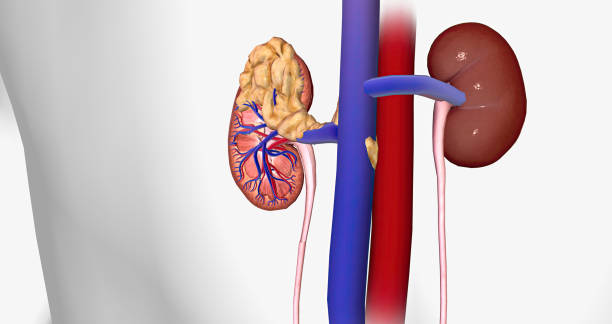Alternative treatment of prostate adenoma has become increasingly popular in recent years, as many people are seeking out alternatives to traditional medical procedures. Unfortunately, this popularity has resulted in many patients being misled about the effectiveness of these treatments. In this blog post, we will be discussing why you shouldn’t trust alternative treatments for prostate adenoma and the ways in which patients are being deceived. We will also explore some of the potential risks and dangers associated with these treatments. So keep reading to find out more about why alternative treatments for prostate adenoma may not be the best option for you.
The Dangers of Untested Treatments
When it comes to treating prostate adenoma, patients should always be wary of untested and unregulated alternative treatments. Unfortunately, many people are enticed by the claims of these treatments and overlook the potential dangers they may bring. Alternative treatments of prostate adenoma, such as herbal supplements, acupuncture, or lifestyle changes, often claim to be a ‘quick fix’ with minimal risk. However, this is often not the case, and these treatments can carry risks that are unknown to the user.
These alternative treatments have yet to be proven effective and may even cause more harm than good. In many cases, there have been reports of users experiencing side effects from these treatments, ranging from mild discomfort to severe complications. Furthermore, these treatments are not regulated and could contain ingredients that are toxic or otherwise unsafe for consumption. The lack of evidence to support their effectiveness means that there is no guarantee that these treatments will actually work.
The Lack of Scientific Evidence
When it comes to alternative treatments for prostate adenoma, there is a serious lack of scientific evidence to back up their claims. Most of these treatments have not been tested in clinical trials, and the ones that have been tested often yielded unreliable results. Many times, these treatments are based on anecdotal evidence or old wives’ tales, which can be dangerously misleading. In fact, some of these treatments can actually be dangerous to your health. It is important to remember that prostate adenoma is a medical condition and should only be treated with medically approved treatments. Any unproven treatments should be approached with extreme caution.
The Risks Involved
When it comes to alternative treatments of prostate adenoma, the risks are numerous. In some cases, the treatments may be ineffective or even cause more harm than good. Additionally, there is a chance of the treatment causing more severe symptoms, such as increased urinary frequency, urgency, and pain. There may also be an increased risk of bladder cancer due to the use of unproven treatments. Other risks include infection, kidney damage, and allergic reactions.
The use of unproven alternative treatments can also lead to emotional distress and financial burden. Patients may become desperate and spend large sums of money on treatments that have no scientific basis and no clear benefit. This can lead to frustration and disappointment if the treatment fails to alleviate the symptoms.
Lastly, many alternative treatments are not regulated by the FDA, so there is no guarantee that they are safe or effective. In fact, some of these treatments may contain potentially dangerous ingredients or be manufactured in unsanitary conditions. Therefore, it is important to exercise caution when considering alternative treatments for prostate adenoma.
The Bottom Line
When it comes to alternative treatments for BPH, or prostate adenoma, it is important to be aware of the risks involved and the lack of scientific evidence. Many of these treatments are untested, unregulated, and could even be dangerous. While these treatments may offer some relief, they may not be safe or effective in the long-term. Therefore, before trying any alternative treatments, it is recommended to discuss them with your doctor and weigh the risks and benefits.
These elective medicines presently can’t seem to be demonstrated successful and may try and really hurt more than great. Generally speaking, there have been reports of clients encountering secondary effects from these medicines, going from gentle inconvenience to serious entanglements. Besides, these medicines are not directed and could contain fixings that are poisonous or generally perilous for utilization. The absence of proof to help their viability really intends that there is no assurance that these medicines will truly work.
In addition, keep in mind that many alternative remedies marketed as “cures” for prostate adenoma don’t actually address the underlying cause of the condition. Herbal remedies, dietary supplements, special diets, and physical therapies can help relieve symptoms but won’t address the actual issue: a growth of abnormal cells within the gland itself. Surgery, on the other hand, can remove the growths and effectively treat the condition at its source. Surgery also has fewer potential side effects than many alternative treatments, making it a more reliable option overall. As such, individuals who suspect they have an enlarged prostate should first consult with a healthcare professional before attempting an alternative treatment regimen.



